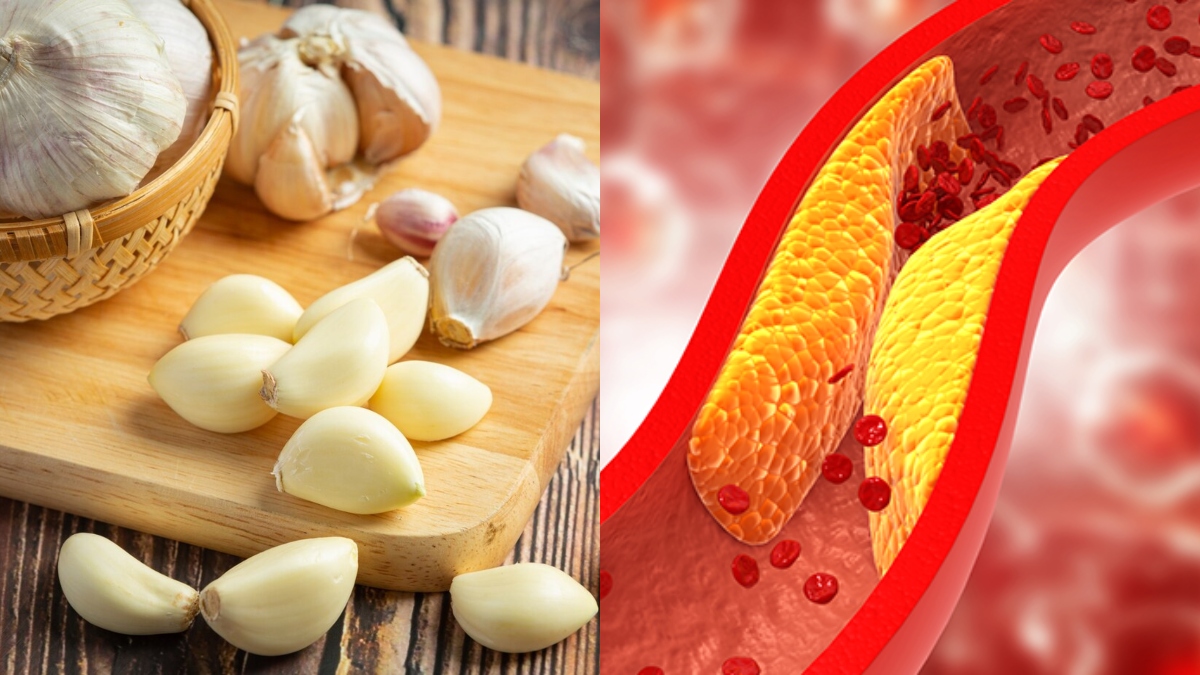- This topic is empty.
- AuthorPosts
- January 21, 2025 at 11:07 pm #542760

Garlic has been used as a culinary ingredient and a medicinal herb for centuries. It has been attributed to numerous health benefits, including lowering cholesterol levels.
There are different types of garlic available in the market, and the question arises, which garlic is good for cholesterol? In this article, we will explore the types of garlic that have been shown to have a positive effect on cholesterol levels.
Types of Garlic
There are several types of garlic available in the market, including white garlic, purple garlic, elephant garlic, and black garlic. The most commonly consumed garlic is white garlic.
It has a strong flavor and aroma and is widely used in cooking. Purple garlic, also known as Korean garlic, has a milder flavor and is often used in pickling.
Elephant garlic, as the name suggests, is much larger than other types of garlic and has a milder flavor. Black garlic is a fermented version of garlic that has a sweet and mellow flavor.
Allicin and Cholesterol
Allicin is a sulfur-containing compound that is found in garlic. It is responsible for the characteristic smell and taste of garlic. Allicin has been shown to have several health benefits, including the ability to lower cholesterol levels.
It does this by inhibiting the enzyme HMG-CoA reductase, which is involved in the production of cholesterol in the liver. By inhibiting this enzyme, allicin reduces the amount of cholesterol that is produced in the liver, leading to a decrease in blood cholesterol levels.
Which Garlic is Good for Cholesterol?
Here is a list of Garlic that can be beneficial for Cholesterol levels:
1. White Garlic: White garlic is the most commonly consumed type of garlic and has been shown to have a positive effect on cholesterol levels.
Several studies have demonstrated that consuming garlic supplements or raw garlic can lead to a decrease in LDL cholesterol levels. LDL cholesterol is commonly known as “bad” cholesterol as it can build up in the walls of arteries and increase the risk of heart disease.
A study published in the Journal of Nutrition found that consuming 900 mg of garlic powder per day for 12 weeks led to a significant reduction in LDL cholesterol levels in individuals with high cholesterol levels.
2. Purple Garlic: Purple garlic, also known as Korean garlic, has a milder flavor than white garlic. It has been shown to have a similar effect on cholesterol levels as white garlic.
A study published in the Journal of Medicinal Food found that consuming purple garlic for eight weeks led to a significant reduction in total cholesterol levels in individuals with high cholesterol levels.
3. Black Garlic: Black garlic is a fermented version of garlic that has a sweet and mellow flavor. It has been shown to have several health benefits, including the ability to lower cholesterol levels.
A study published in the Journal of Medicinal Food found that consuming black garlic for 12 weeks led to a significant reduction in LDL cholesterol levels in individuals with high cholesterol levels.
4. Elephant Garlic: Elephant garlic is much larger than other types of garlic and has a milder flavor. It has not been extensively studied for its effect on cholesterol levels.
However, it is rich in allicin, which is responsible for the cholesterol-lowering properties of garlic. Therefore, it is likely that consuming elephant garlic can have a positive effect on cholesterol levels.
Overall, Garlic has been shown to have a positive effect on cholesterol levels. Allicin, a compound found in garlic, inhibits the enzyme HMG-CoA reductase, which is involved in the production of cholesterol in the liver.
Consuming garlic supplements or raw garlic can lead to a decrease in LDL cholesterol levels, which is commonly known as bad cholesterol.
White garlic, purple garlic, and black garlic have been shown to have a positive effect on cholesterol levels. Elephant garlic, although not extensively studied, is likely to have a similar effect due to its high allicin content.
- AuthorPosts
- You must be logged in to reply to this topic.

